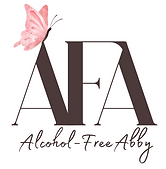How Sobriety Opens Up Space for Creativity, True Self-Care, and Peace
- Abby Calabrese
- Feb 4
- 4 min read

For many of us, alcohol was more than just a drink—it was a habit, a crutch, or even a way to “take the edge off.” But what if sobriety isn’t about losing something, but rather gaining space for things that truly fulfill us?
When you remove alcohol from your life, you don’t just eliminate hangovers and regrets—you create room for creativity, authentic self-care, and real peace. Without the constant cycle of highs and crashes, your brain, body, and emotions begin to stabilize, allowing you to reconnect with your passions and find deeper fulfillment in everyday life.
If you’ve ever wondered whether quitting drinking means giving up fun, joy, or creativity, I’m here to tell you: it’s actually the opposite. Sobriety is the beginning of a richer, more creative, and more peaceful life. Let’s talk about how.
Creativity Flourishes Without Alcohol
Alcohol Dulls Creativity—Sobriety Reignites It
Many people associate alcohol with creativity—think of writers sipping whiskey as they type or artists drinking wine in their studios. But in reality, alcohol dulls your brain’s ability to think deeply and creatively over time.
When you’re drinking, your brain is often stuck in survival mode, prioritizing immediate gratification over long-term creative expression. Once you remove alcohol, you regain the mental clarity, energy, and focus needed to explore creative passions you may have abandoned—or never even considered.
Curating Your Own Digital Canvas
One example of this newfound creativity? Curating an Instagram account that reflects your authentic self. Sobriety allows you to be intentional with your creativity. Whether it’s sharing your journey, creating sober-curious content, or diving into photography, you get to shape your digital space in a way that aligns with who you truly are.
Rediscovering Artistic Hobbies
Have you ever wanted to paint, write poetry, or play an instrument? Sobriety frees up time, energy, and inspiration to dive into artistic hobbies. Studies show that engaging in creative activities can:
✅ Reduce stress and anxiety
✅ Improve self-esteem
✅ Enhance emotional processing
In fact, a study published in the Journal of Addictions Nursing found that art therapy in addiction recovery led to decreased denial, improved self-expression, and better emotional regulation. (source)
Sobriety Lets You Experience True Self-Care
The Difference Between Numbing & Nourishing
Before sobriety, “self-care” might have looked like pouring a glass of wine after a long day. But was that really self-care? Or was it numbing?
Real self-care isn’t about escaping your emotions—it’s about nurturing yourself in ways that truly restore you.
Now, self-care might look like:
✨ Coloring & listening to an inspiring podcast before bed
✨ Taking a little longer with your nighttime skin routine
✨ Moving your body in a way that feels good, rather than punishing it for poor choices
You No Longer Feel Guilty for Resting
Alcohol creates a cycle of exhaustion and guilt. You stay up late drinking, wake up feeling awful, and then beat yourself up for being unproductive. Even your “relaxation” feels tainted with guilt.
Without alcohol, you finally give yourself permission to rest—without the guilt. Whether it’s spending a slow morning sipping tea, taking a mid-day nap, or simply enjoying a quiet evening at home, you realize that rest is productive.
No More Dopamine Roller Coasters
One of the biggest ways sobriety changes your life? Stabilizing your dopamine levels.
How Alcohol Messes with Your Brain Chemistry
Alcohol artificially floods your brain with dopamine, the neurotransmitter responsible for pleasure and reward. But this surge is temporary—your brain quickly adapts by producing less dopamine on its own. That’s why, over time, you need more alcohol to feel the same “high”—and why sobriety can feel “boring” at first.
Once you quit drinking, your brain recalibrates, allowing you to experience genuine joy and fulfillment from everyday activities. Instead of relying on alcohol to create fun, you start finding pleasure in things that naturally make you happy—like music, nature, deep conversations, or movement.
The Science Behind Dopamine & Sobriety
Studies have shown that long-term alcohol use disrupts the brain’s ability to regulate dopamine, leading to mood swings, depression, and increased cravings. However, within 3-6 months of sobriety, dopamine levels begin to stabilize, making room for natural and sustainable happiness. (source)
Sobriety Isn’t the End of Fun—It’s the Start of Authentic Joy
There’s a common fear that sobriety means giving up fun. That life will be dull, that you’ll never laugh as hard, dance as freely, or enjoy social events the way you used to. But the truth? Sobriety doesn’t take away joy—it gives you back the joy you may have been ignoring for years.
You Laugh Harder. You Feel More Present.
When you’re not numbing yourself with alcohol, you’re fully present in every moment. You actually listen during conversations. You experience real belly laughs—not just tipsy giggles.
You Discover New Ways to Have Fun
In sobriety, you might find yourself:
🎨 Getting lost in a creative project for hours
🌿 Going on a morning hike and feeling energized, not hungover
🎶 Enjoying music and dancing because it feels good, not because you’re drunk
You Build a Life You Don’t Want to Escape From
The most powerful thing about sobriety? You no longer need a “break” from your life. You create a reality that feels so fulfilling, peaceful, and joyful that you wouldn’t trade it for a buzz.
Final Thoughts: Sobriety Creates Space for the Life You Truly Want
Choosing sobriety isn’t about giving something up—it’s about creating space for what truly matters.
✨ You open up room for creativity, whether it’s curating a digital space, painting, or writing.
✨ You embrace real self-care, allowing yourself to rest and restore without guilt.
✨ You stabilize your emotions, breaking free from the highs and lows of alcohol’s dopamine disruption.
Most importantly, you discover joy that isn’t manufactured, but real. Sobriety isn’t the end of fun—it’s the beginning of a deeper, more fulfilling, and truly joyful life.




Comments